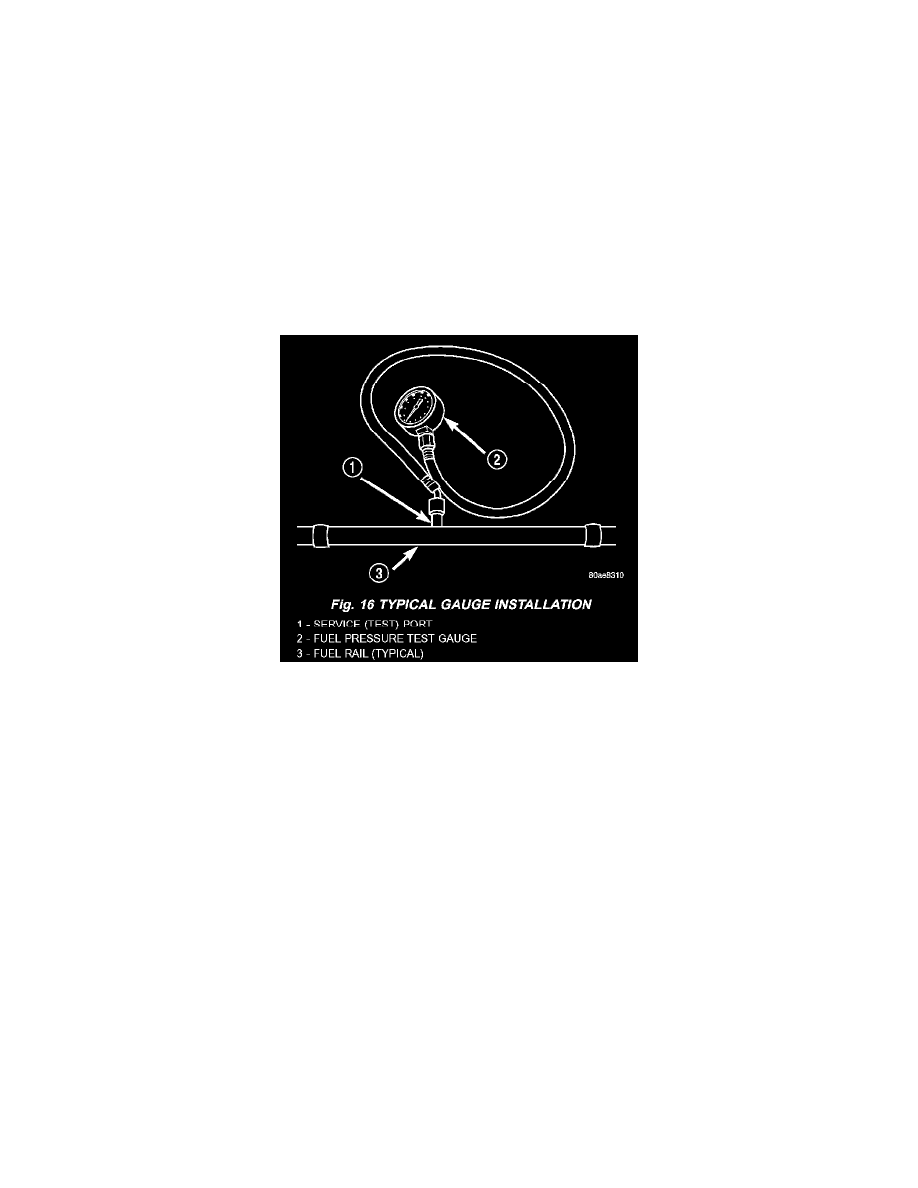RAM 1500 Truck 4WD V8-5.9L VIN Z (2002)

Fuel Pressure: Testing and Inspection
Fuel Pump Pressure Test
Use this test in conjunction with the Fuel Pump Capacity Test, Fuel Pressure Leak Down Test and Fuel Pump Amperage Test found elsewhere in this
group.
Check Valve Operation: The fuel pump module contains a one-way check valve to prevent fuel flow back into the tank and to maintain fuel supply line
pressure (engine warm) when pump is not operational. It is also used to keep the fuel supply line full of gasoline when pump is not operational. After the
vehicle has cooled down, fuel pressure may drop to 0 psi (cold fluid contracts), but liquid gasoline will remain in fuel supply line between the check
valve and fuel injectors. Fuel pressure that has dropped to 0 psi on a cooled down vehicle (engine OFF) is a normal condition. When the electric fuel
pump is activated, fuel pressure should immediately (1 - 2 seconds) rise to specification.
The fuel system is equipped with a combination fuel filter / fuel pressure regulator. The fuel pressure regulator is not controlled by engine vacuum.
WARNING: THE FUEL SYSTEM IS UNDER CONSTANT FUEL PRESSURE EVEN WITH THE ENGINE OFF. BEFORE
DISCONNECTING FUEL LINE AT FUEL RAIL, THIS PRESSURE MUST BE RELEASED. REFER TO THE FUEL SYSTEM PRESSURE
RELEASE PROCEDURE.
Fig. 16 Typical Gauge Installation
1. Remove protective cap at fuel rail test port. Connect the 0 - 414 kPa (0 - 60 psi) fuel pressure gauge (from gauge set 5069) to test port pressure
fitting on fuel rail (Fig. 16). The DRB(R) III Scan Tool along with the PEP module, the 500 psi pressure transducer, and the transducer-to-test port
adapter may also be used in place of the fuel pressure gauge.
2. Start and warm engine and note pressure gauge reading. Fuel pressure should be 339 kPa ± 34 kPa (49.2 psi ± 5 psi) at idle.
3. If engine runs, but pressure is below 44.2 psi, check for a kinked fuel supply line somewhere between fuel rail and fuel pump module. If line is not
kinked, but specifications for either the Fuel Pump Capacity, Fuel Pump Amperage or Fuel Pressure Leak Down Tests were not met, replace fuel
pump module. Refer to Fuel Pump Module Removal/Installation.
4. If operating pressure is above 54.2 psi, electric fuel pump is OK, but fuel pressure regulator is defective. Replace fuel pump module. Refer to Fuel
Pump Module Removal/Installation.
5. Install protective cap to fuel rail test port.
